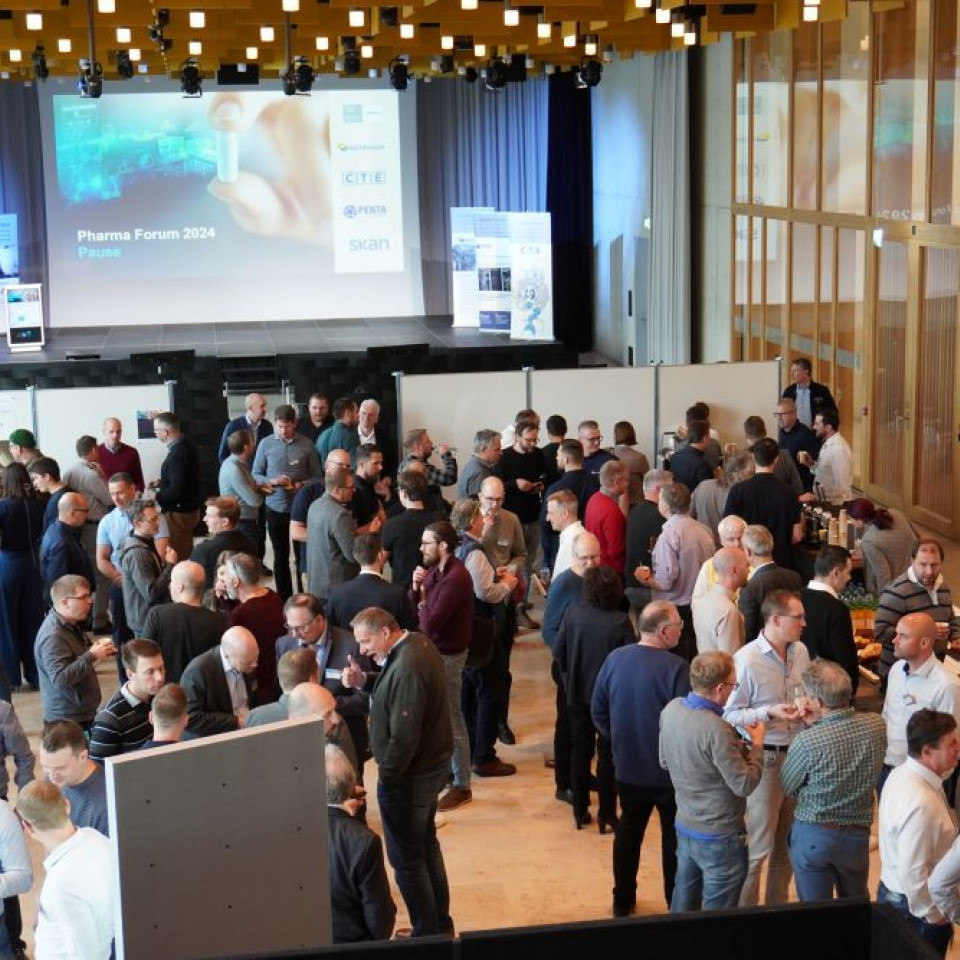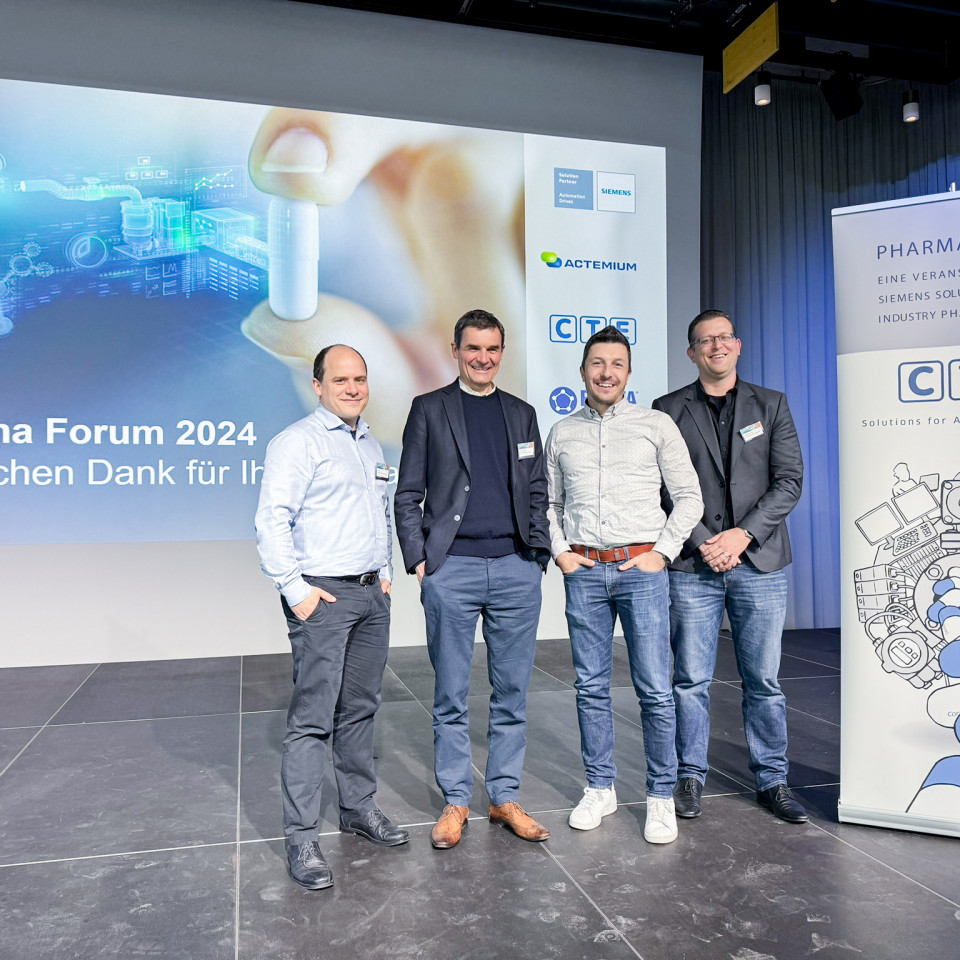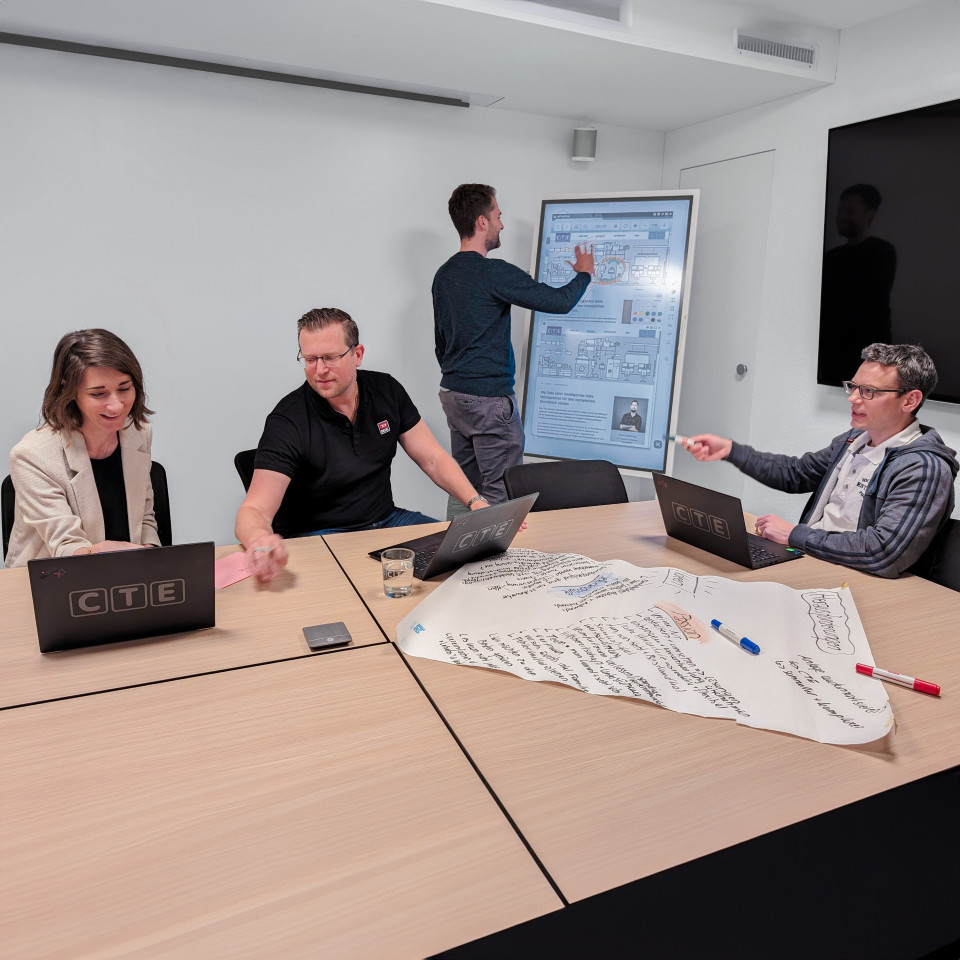"Data management is not magic. It's hard work, but it's worth it."
Is data the new gold? What are the big questions facing the industry? ControlTech Engineering AG is expanding its portfolio to include an important area and CEO Dominic Brunner explains the background.
ControlTech Engineering, with over 30 years of experience in automation and industrial IT, is expanding its portfolio to include an important area: data management. Our experts not only collect and analyze data efficiently - they can also turn it into added value. In conversation with Dominic Brunner, it quickly becomes clear why "big data" is at the top of his list of specialist topics:
Why is ControlTech Engineering (CTE) now focusing even more strongly on data management?
Dominic Brunner: We have been collecting, structuring and archiving data from a wide variety of sources for years. As our experience has grown, we have become more and more specialized, so that we are now officially positioning ourselves in the field of data management. I don't think we need to discuss the importance of big data in the industrial environment any more, do we?
What are your personal experiences with big data?
Dominic Brunner: In everyday life, I read statements such as "data is the new gold" or examples such as the BEA study, which describes the growing value of data using the US economy as an example. It estimates that the annual current dollar investment in company data has risen from 84 billion dollars in 2002 to 186 billion dollars in 2021. In 2020, the WEF also officially stated that data is a new production factor, but at the same time recognized the danger because many companies believe they lack the maturity or actionable knowledge to use data effectively. We probably need to talk a lot more about big data to make it clear: Data management is not magic. It takes work and investment. But it's not rocket science either. All companies can benefit from an efficient approach and use their data profitably.
What does that mean in plain language?
Dominic Brunner: Even before my time at CTE, I saw how vast amounts of data were collected, which cost many millions to "produce". However, a strategy for data management did not exist or only emerged when attempts were made to put the data to use. The data is then available for a long time without context in different, unusable formats. The potential lies idle. Or the expectations of the collected data are so high that the disappointment is great when it becomes clear that a data analyst cannot work miracles without contextual information. Without clear rules, no magical algorithm will emerge from an unstructured data pool.
But isn't that what it's all about? Data management should help to generate added value from the data.
Dominic Brunner: Of course. We create the perfect conditions. We set small, achievable and clear targets that can be reached with the available data. We do this with the knowledge of the various departments, such as the plant operators or the process experts. In turn, we ensure that the data structure is adapted and dedicated and consistently bring context to the data. We also work with external partners to achieve this.
At the end of the day, it's all about cooperation between the various disciplines and the specialist knowledge of all the experts. This is exactly where we come in. It takes us and the customer's experts to successfully implement a data project.
Very exciting. So that's the reason why CTE is now communicating Data Management as an independent area. What is the connection to automation and industrial IT?
Dominic Brunner: Our expertise from 30 years of automation and industrial IT gives us skills in the areas of data hub, Data Historian, Data Visualization and data analysis. But don't worry - it's not our goal to become data analysts. We want to build up a broader knowledge of AI internally and in exchange with partners. We want to understand what the specialists in this field need and where the technology really stands. It's about debunking the magic and promoting understanding within the team. Together with the customer's product, process and business experts, our data experts can help create context. We are convinced that we can make our customers' projects, systems or workflows more efficient with the help of this approach.
Can this statement be specified a little more precisely?
Dominic Brunner: We are now developing specific offerings that help to get even more out of existing data. Our Data Science Framework (DSF), for example, describes our process model for the efficient and targeted data-based optimization of a system or plant. The DSF product in particular requires all of CTE's skills, as we use industrial IT to ensure the accessibility and availability of the data and automation to exploit the previously undiscovered potential of the system.
So CTE's starting position with the experts for automation and industrial IT is perfect?
Dominic Brunner: In fact, the connection between all areas is obvious. The data must be automated from the plant (automation) via the IT infrastructure (industrial IT) to the data hub, which must of course be appropriately secure (cyber security). With our DSF product, we find optimization potential, which in turn can be implemented with automation and industrial IT.
Is there an industry that is more data-savvy?
Dominic Brunner: Larger customers in the early stages of the product life cycle, such as research and development, are investing heavily in digitalization. This is where we recognize our potential with our knowledge of production automation. We can help to improve data consistency and usability across the various phases of the product life cycle. We demonstrated this at ILMAC , which is why we are also a member of the FHNW Miniplant association.
With smaller customers and productions, we recognize that the topic of data management is currently mostly used for validation and reporting. There is still great potential here, as the WEF has already recognized. As CTE, we would like to raise awareness and report more about our knowledge.
Where is the greatest potential?
Dominic Brunner: For me, terms like big data and smart industry still have the air of hype or buzzwords, especially when it comes to moving away from the big platform companies like Google, Amazon or Tesla. And even with these companies with huge resources behind them, you can see how long and rocky the road is. Tesla, for example, has been promising the "Coast-to-Coast Drive" for more than 10 years now... But in other aspects such as incremental development, I see real added value - in everyday working life as well as in company processes. We at CTE also want to be at the cutting edge of technology in five to ten years' time. We want to make life easier not only for our customers, but also for our employees.


